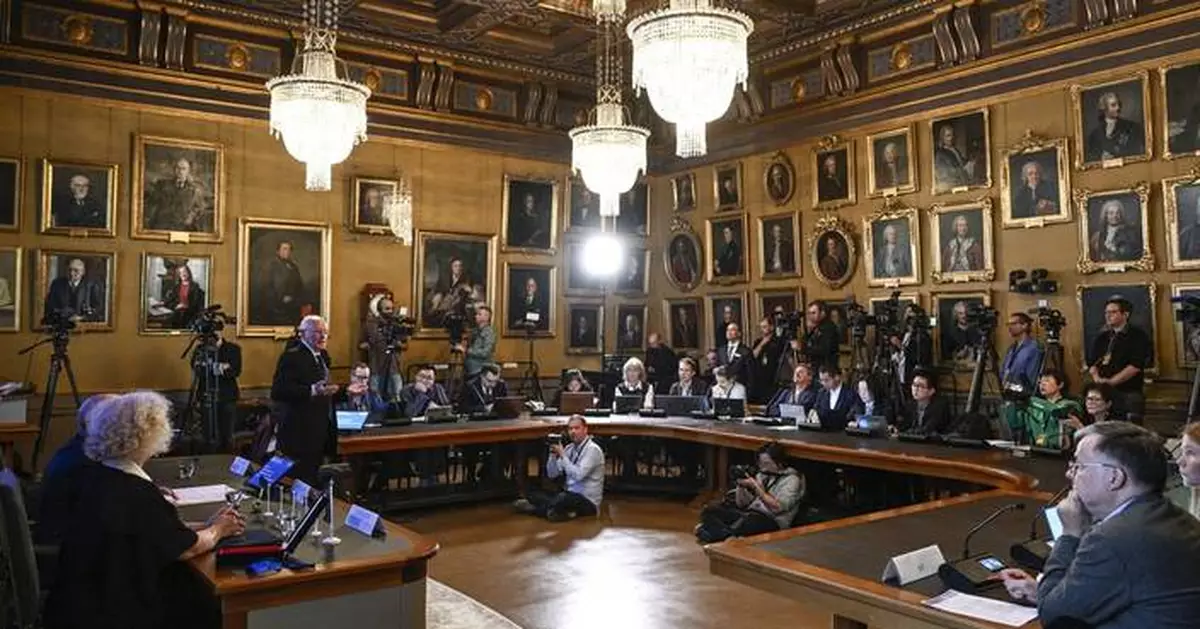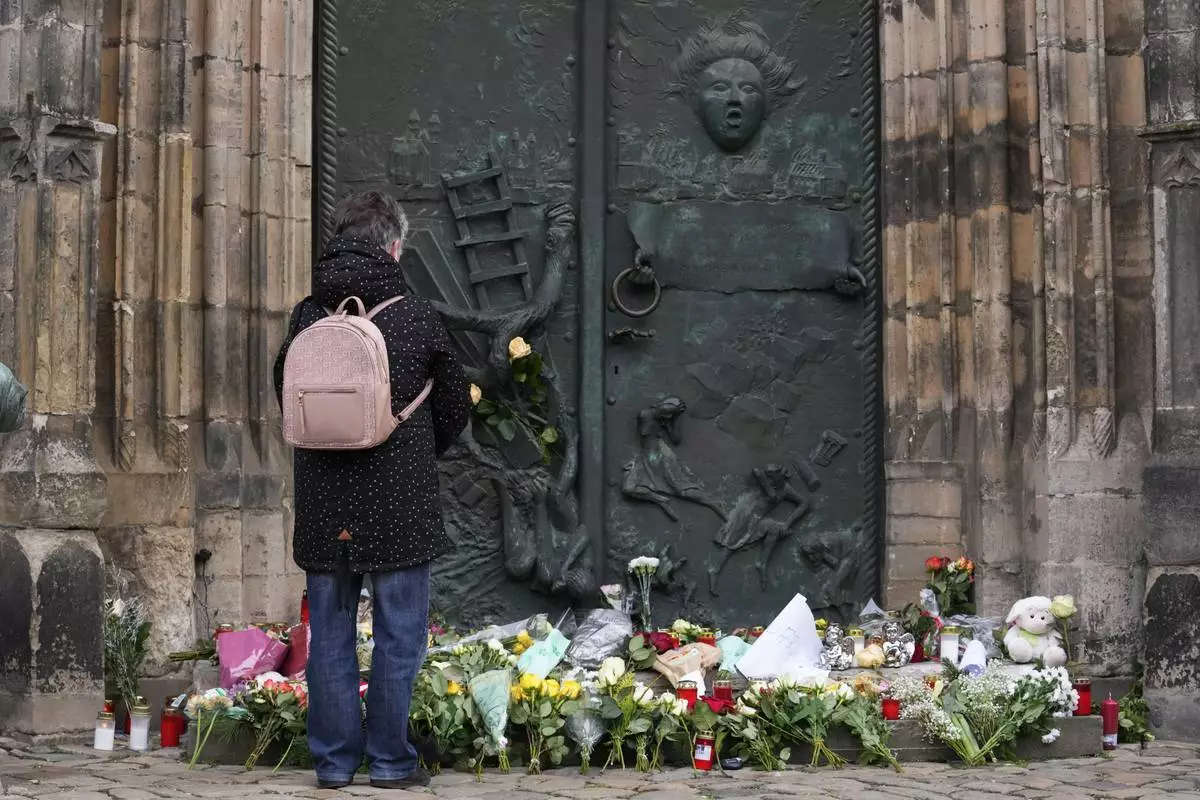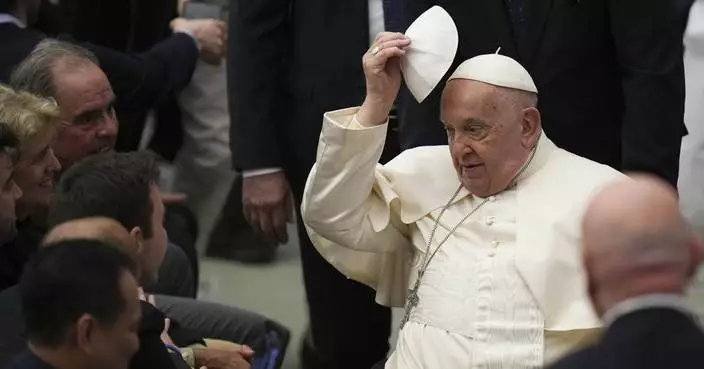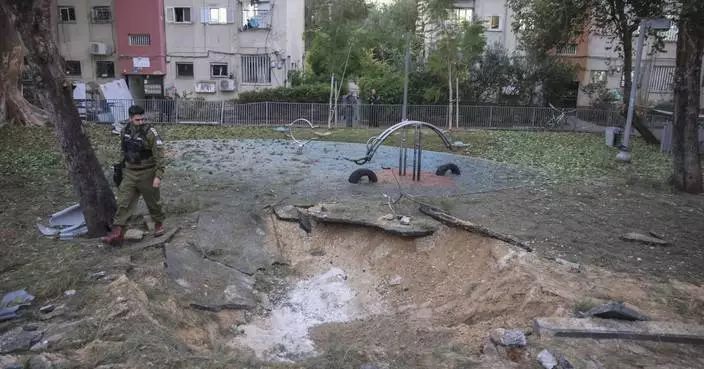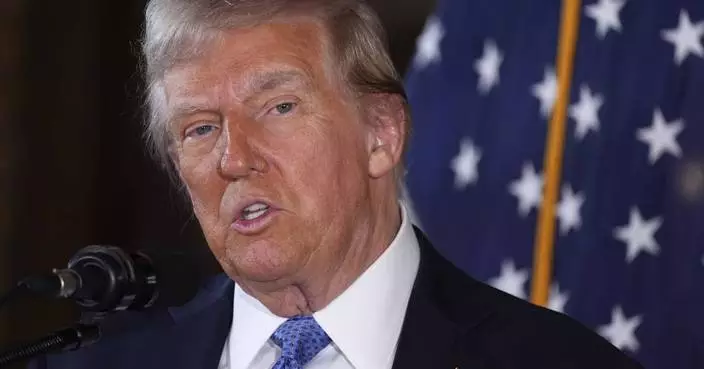STAVANGER, Norway (AP) — Wars, a refugee crisis, famine and artificial intelligence could all be recognized when Nobel Prize announcements begin next week under a shroud of violence.
The prize week coincides with the Oct. 7 anniversary of the Hamas-led attacks on Israel, which began a year of bloodshed and war across the Middle East.
The literature and science prizes could be immune. But the peace prize, which recognizes efforts to end conflict, will be awarded in an atmosphere of ratcheting international violence — if awarded at all.
“I look at the world and see so much conflict, hostility and confrontation, I wonder if this is the year the Nobel Peace Prize should be withheld,” said Dan Smith, director of the Stockholm International Peace Research Institute.
As well as events roiling the Middle East, Smith cites the war in Sudan and risk of famine there, the ongoing conflict in Ukraine, and his institute's research showing that global military spending is increasing at its fastest pace since World War II.
“It could go to some groups which are making heroic efforts but are marginalized,” Smith said. "But the trend is in the wrong direction. Perhaps it would be right to draw attention to that by withholding the peace prize this year.”
Withholding the Nobel Peace is not new. It has been suspended 19 times in the past, including during the world wars. The last time it was not awarded was in 1972.
However, Henrik Urdal, director of the Peace Research Institute Oslo, says withdrawal would be a mistake in 2024, saying the prize is “arguably more important as a way to promote and recognize important work for peace.”
Civil grassroot groups, and international organizations with missions to mitigate violence in the Middle East could be recognized.
Nominees are kept secret for 50 years, but nominators often publicize their picks. Academics at the Free University Amsterdam said they have nominated the Middle East-based organizations EcoPeace, Women Wage Peace and Women of the Sun for peace efforts between Israelis and Palestinians.
Urdal believes it's possible the committee could consider the Sudan Emergency Response Rooms, a group of grassroots initiatives providing aid to stricken Sudanese facing famine and buffeted by the country’s brutal civil war.
The announcements begin Monday with the physiology or medicine prize, followed on subsequent days by the physics, chemistry, literature and peace awards.
The Peace Prize announcement will be made on Friday by the Norwegian Nobel Committee in Oslo, while all the others will be announced by the Royal Swedish Academy of Sciences in Stockholm. The prize in economics will be announced the following week on Oct. 14.
New technology, possibly artificial intelligence, could be recognized in one or more of the categories.
Critics of AI warn the rise of autonomous weapons shows the new technology could mean additional peace-shattering misery for many people. Yet AI has also enabled scientific breakthroughs that are tipped for recognition in other categories.
David Pendlebury, head of research analysis at Clarivate’s Institute for Scientific Information, says scientists from Google Deepmind, the AI lab, could be among those under consideration for the chemistry prize.
The company’s artificial intelligence, AlphaFold, “accurately predicts the structure of proteins,” he said. It is already widely used in several fields, including medicine, where it could one day be used to develop a breakthrough drug.
Pendlebury spearheads Clarivate’s list of scientists whose papers are among the world’s most cited, and whose work it says are ripe for Nobel recognition.
“AI will increasingly be a part of the panoply of tools that researchers use,” Pendlebury said. He said he would be extremely surprised if a discovery “firmly anchored in AI” did not win Nobel prizes in the next 10 years.
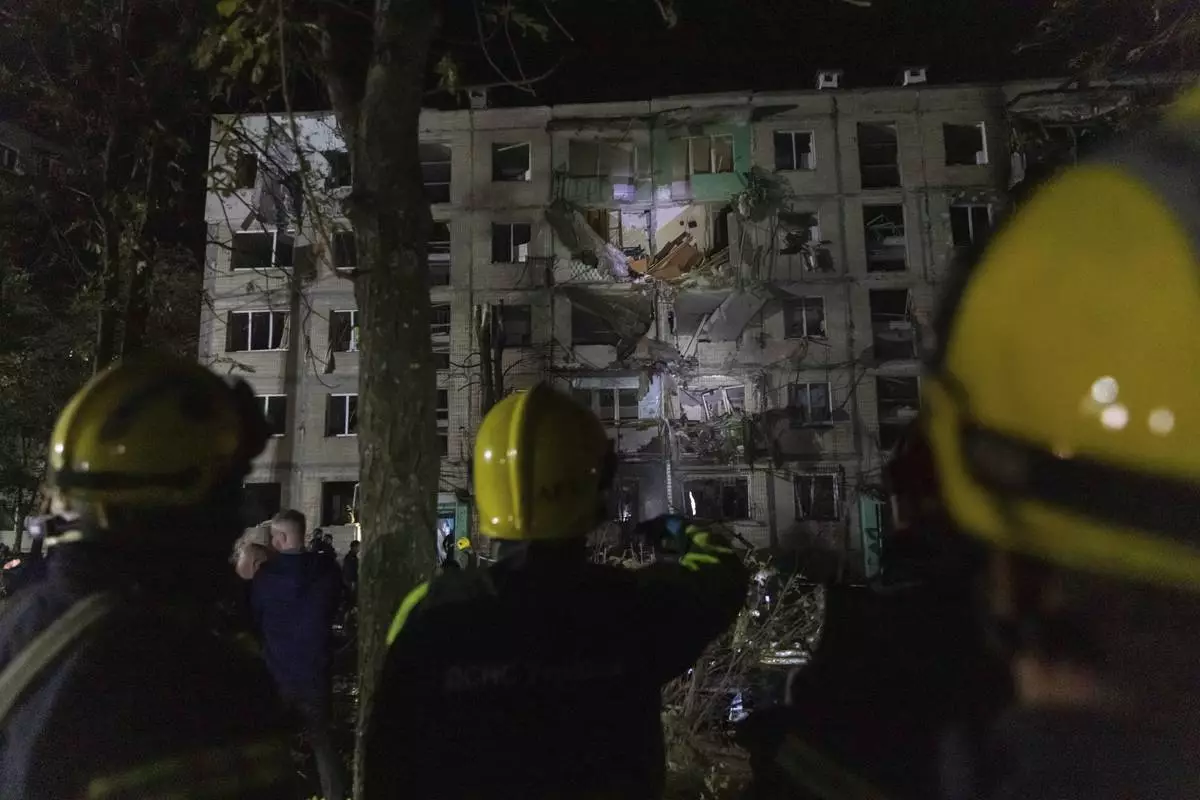
FILE - Firefighters work on a site of a building damaged by a Russian airstrike in Kharkiv, Ukraine, on Oct. 3, 2024. (AP Photo/Yevhen Titov, File)
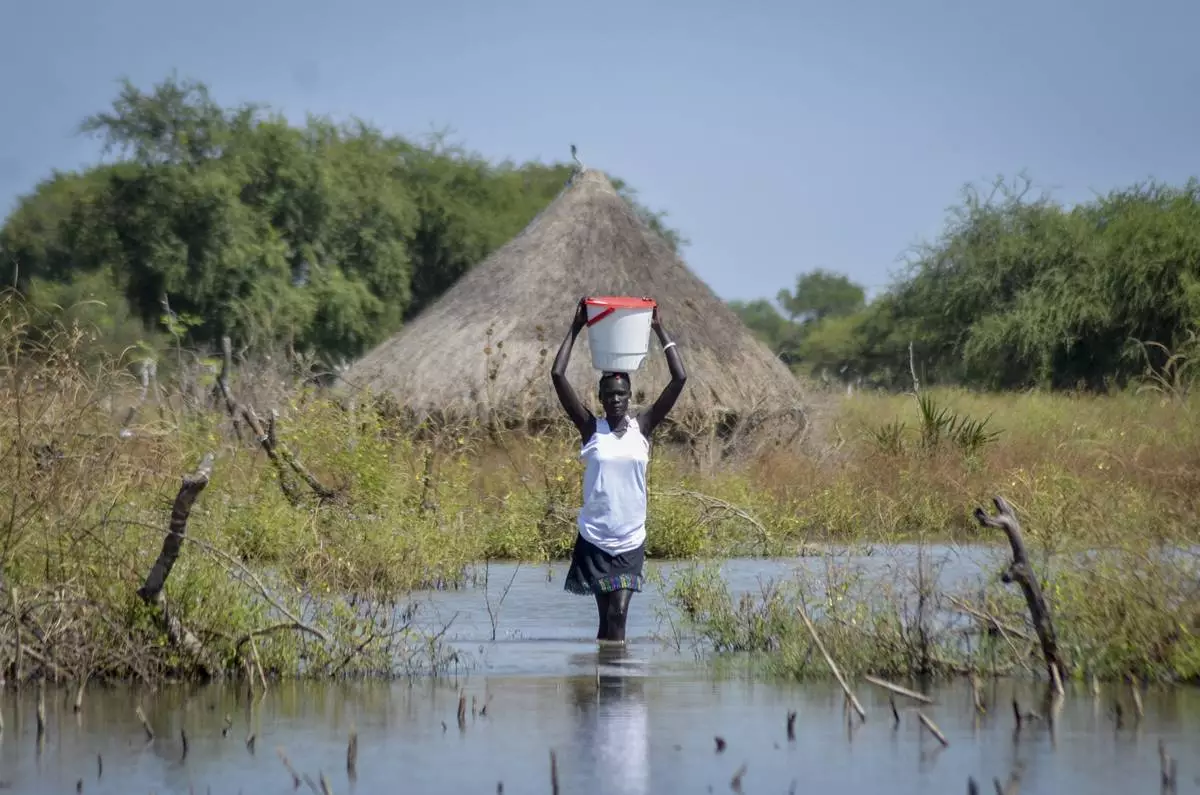
FILE - A woman carries a bucket on her head as she wades through floodwaters in the village of Wang Chot, Old Fangak county, Jonglei state, South Sudan, on Nov. 26, 2020. (AP Photo/Maura Ajak, File)

FILE - Palestinians celebrate by a destroyed Israeli tank at the Gaza Strip fence east of Khan Younis southern, on Oct. 7, 2023. (AP Photo, File)
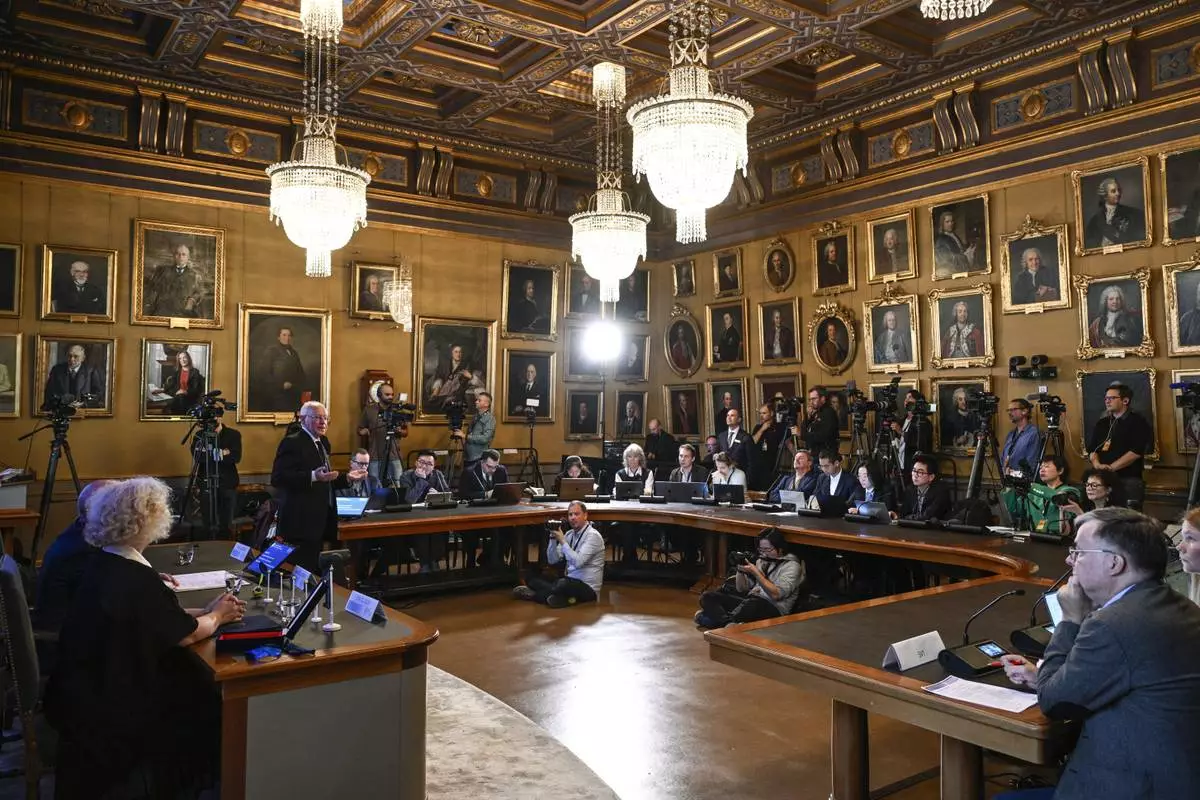
FILE - Mats Larsson, member of the Royal Academy of Sciences, standing at left, speaks during the announcement of the winner of the 2023 Nobel Prize in Physics, at the Royal Academy of Sciences, in Stockholm, on Oct. 3, 2023. (Anders Wiklund/TT News Agency via AP, File)


